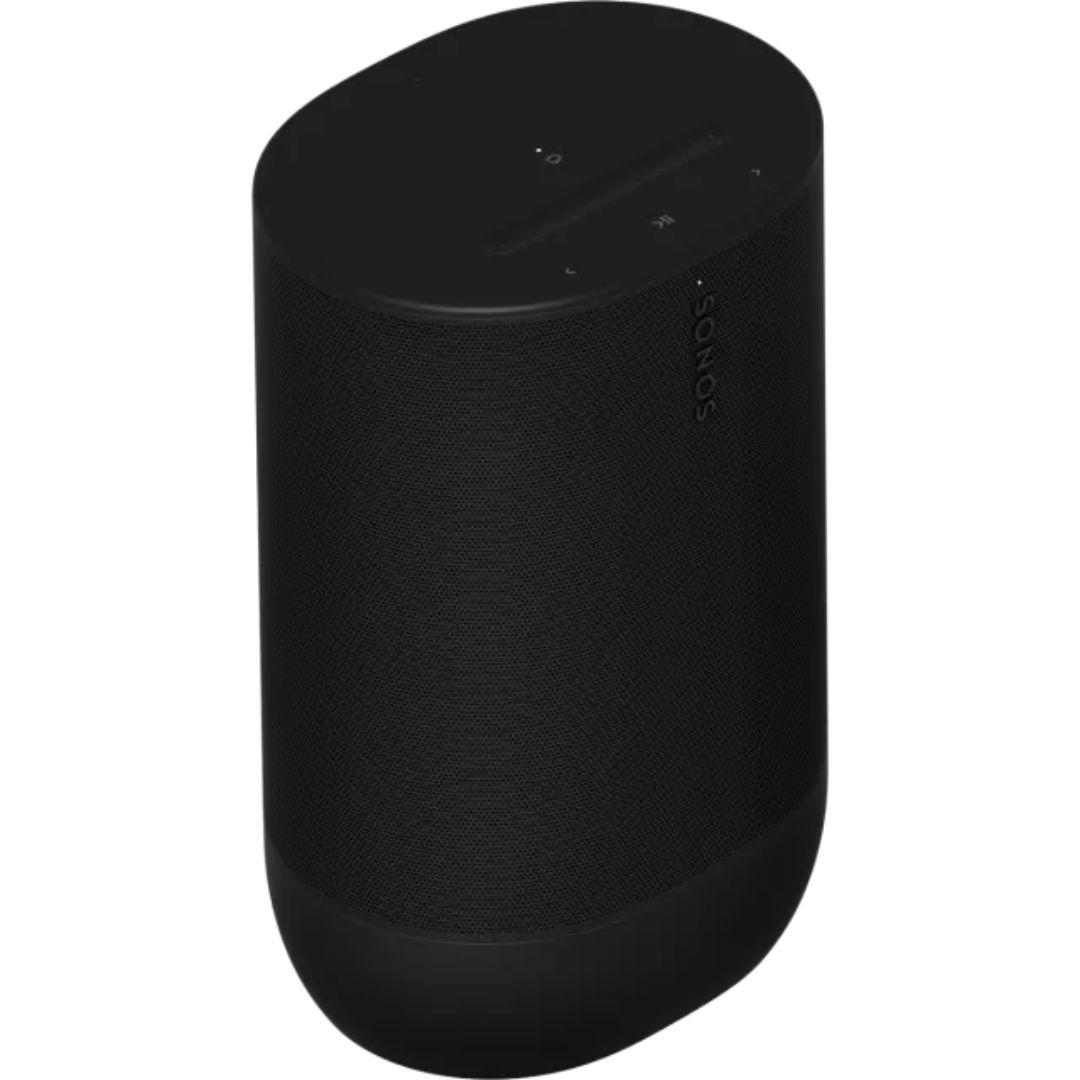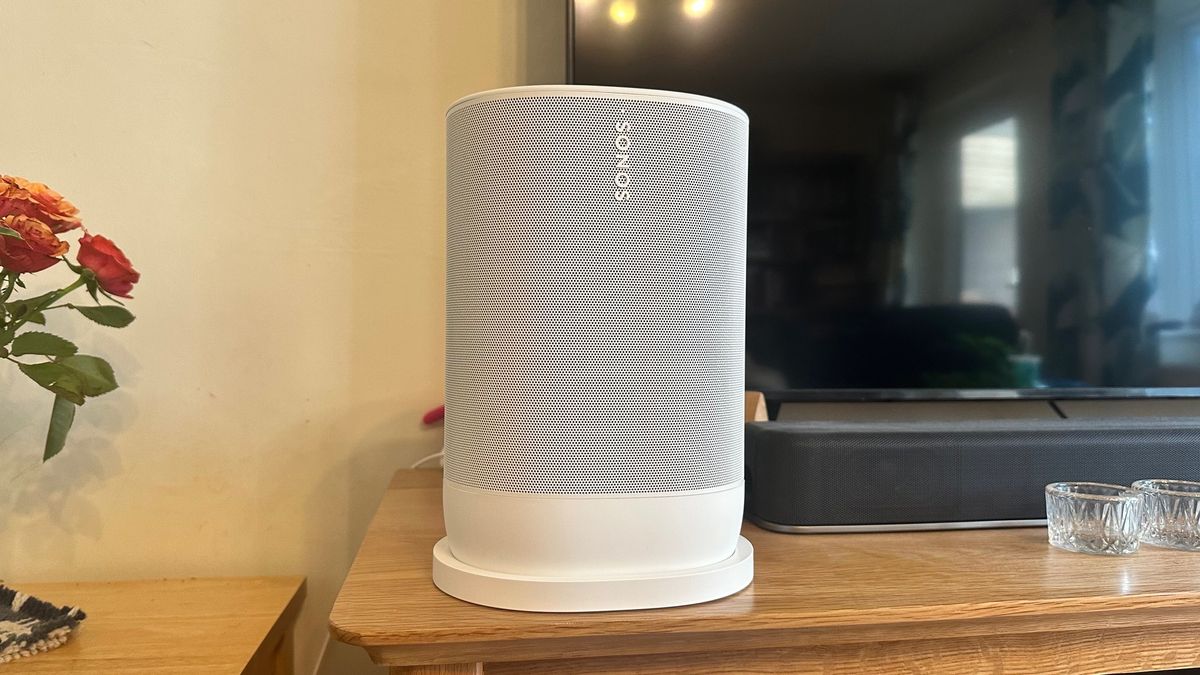With a single strum of Karl Sanders’s distorted guitar, Nile’s That Which is Forbidden reverberates around my office room — taken aback, I reconsider the sound that Bluetooth speakers are able to pump out. There has long been a first generation of HomePod in the same spot, and a surround sound setup attached to the TV that sits behind me, but nothing this size has had the impact that the Sonos Move 2 brings.
The Sonos Move 2 is the sequel to the Sonos Move, a kind of semi-portable Bluetooth speaker that’s designed as more of a moveable Hi-Fi speaker rather than a party machine on the go. The Move 2 brings a new handle design, better sonic architecture inside, and, as I rapidly discovered, some very impressive presence for something that is relatively small.
Is it worth the high price, however, as it bumps dangerously close to the larger, spatial audio-equipped Era 300 from the same company? It’s a lofty price and an even loftier ask from Sonos to get customers to pay as much as the company wants them to, but it might just be worth the investment.

Tammy is the resident audio weirdo at iMore, testing all the latest headphones, speakers, and other assorted sound kit. Reviewer of the five-star Sonos Era 300, Tammy is known for a keen eye for detail and fidelity.
Sonos Move 2: Price and availability
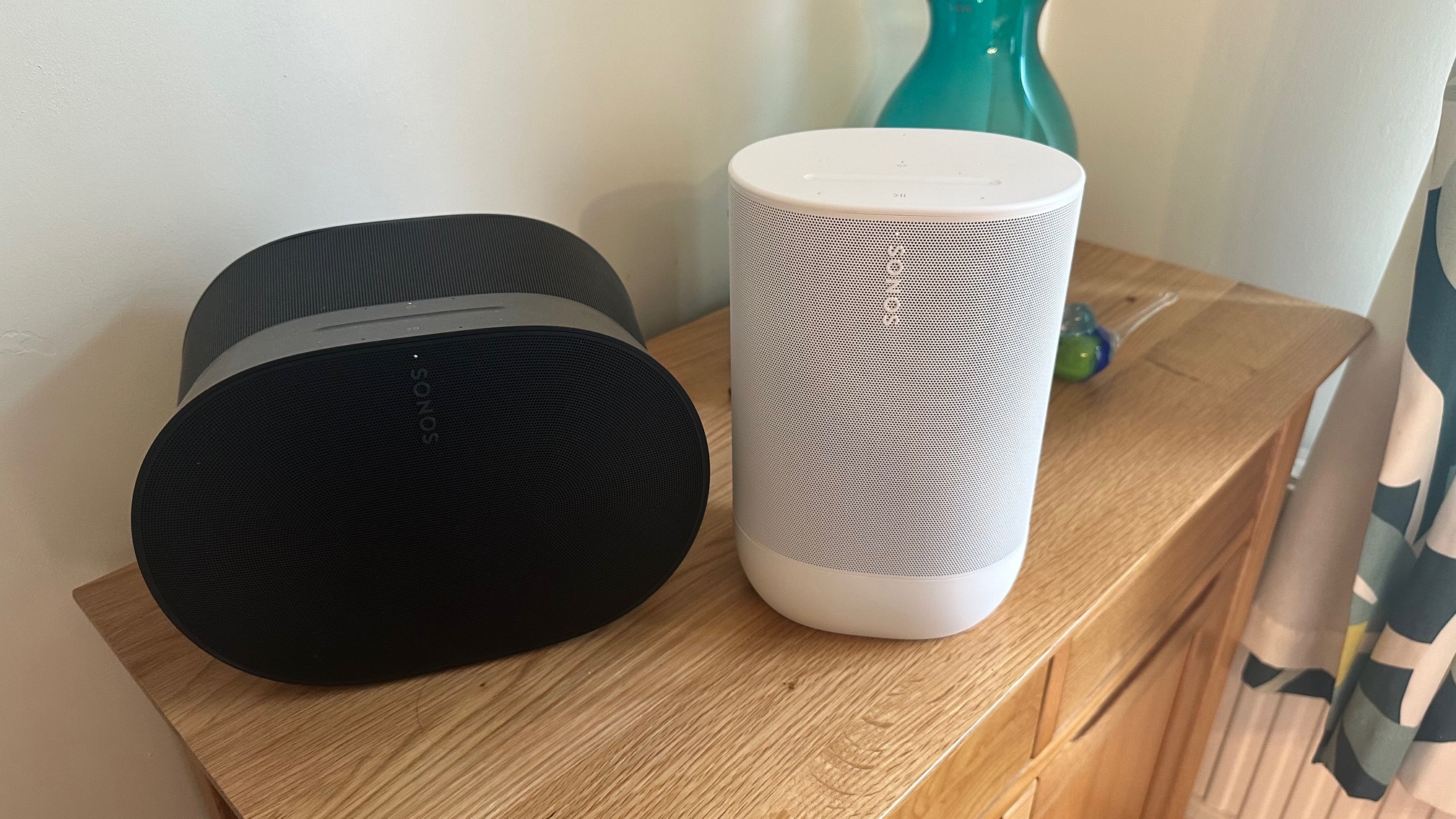
The Sonos Move 2 is, for lack of a better term, expensive. At $449, it’s the same price as the bigger and Spatial Audio-equipped Sonos Era 300, which was already an expensive speaker. That makes it a great deal more than some of the competition at the same size and may tempt you elsewhere. There is plenty up this speaker’s sleeve to keep you curious, however, as we’ll soon find out.
You can get one at any good audio retailer, or a big box retailer like Amazon. The Sonos Website is also an option, although the Move 2 is currently on backorder for the next few weeks there.
Sonos Move 2: Design and build
Borrowing from the design language of the Sonos Era 300 and 100, the Move 2 looks a very classy number. The grille hiding the audio gubbins stretches from the top panel of the device to the base, ending with a kind of rubberized panel that surrounds the bottom. The top panel, which houses the device’s controls and microphones, also features a kind of soft-touch material, making the Move 2 feel more premium than it’s competition — and even the more smoothly finished Era 300.
I personally think that the Move 2 looks great — not quite as artful as the oddly sculptural Era 300, but its more pillar-like design is a fetching mix of minimal and unobtrusive. A pair of these on either side of a TV or on a couple of stands around the room would look good, for example, or just one tucked away in the corner.
It comes in three different colors — a kind of olivey Green, Black, and White. We’re testing the white version here so that it stands out against the black Era 300.
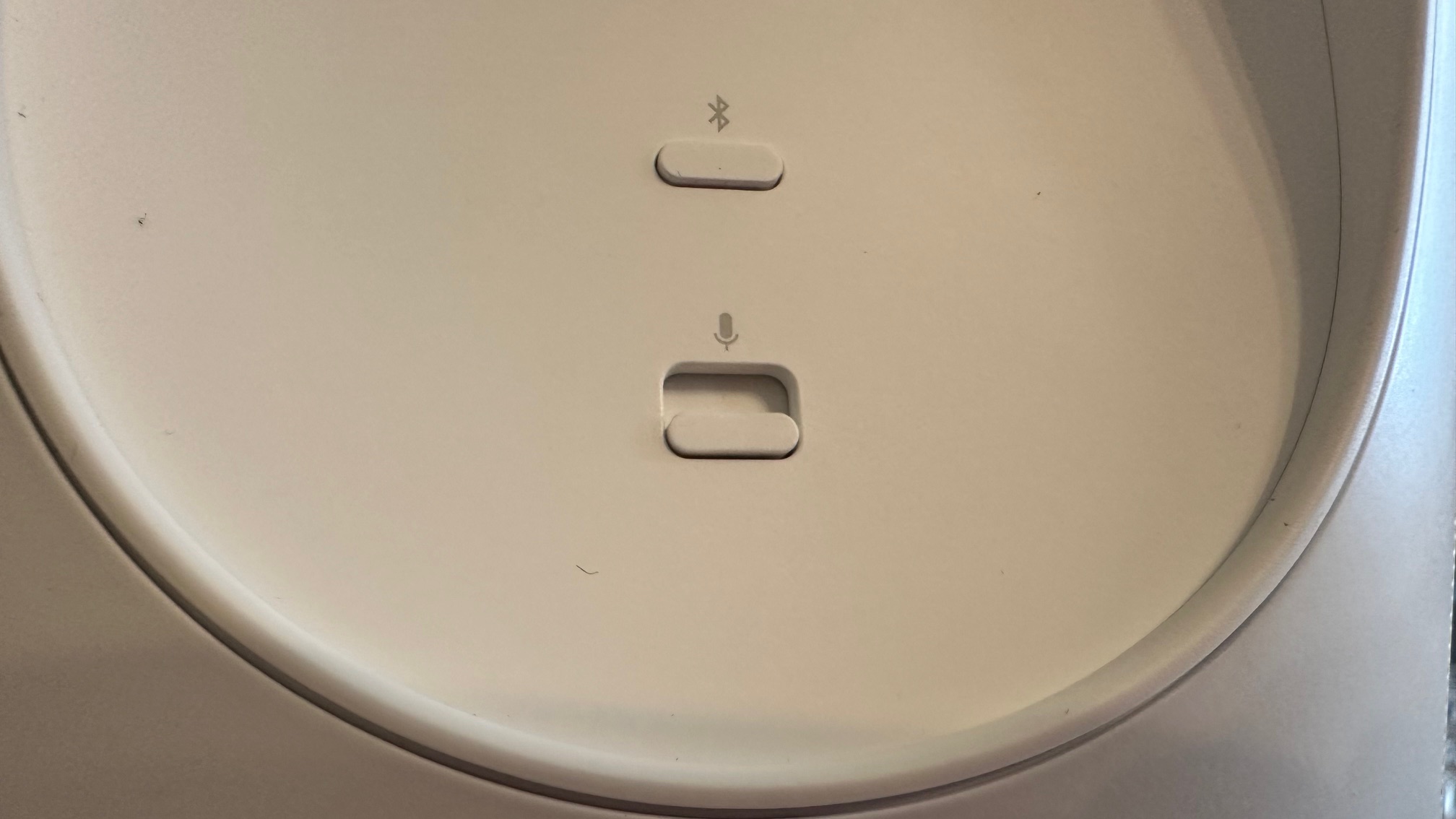
It’s slightly reminiscent of the HomePod 2, albeit missing the fabric mesh from around the edge of the chassis. Instead, the mesh on the Move is a metal fine grille, and it makes the whole package feel sleeker, and cold to the touch for that premium feel.
That metal grille also helps the Move 2 feel immaculately put together, with its excellent mix of materials. Fit and finish is also very impressive, especially around the back where the speaker has its handle and inputs. While the kind of divet handle on the back might not scream ‘I’M SECURE’, it’s more than adequate for carrying the speaker around the house or into the garden to provide a barbeque with Apple Music.
While well made and ‘portable’, this is not a rugged Bluetooth speaker that you’d want to stick in your bag and take with you on hiking trips, however. It’s big, heavy, and it will get dented when treated with heavy hands or bashed around in a rucksack. This is a speaker for the home and the garden, and no more than that.
Sonos Move 2: Features
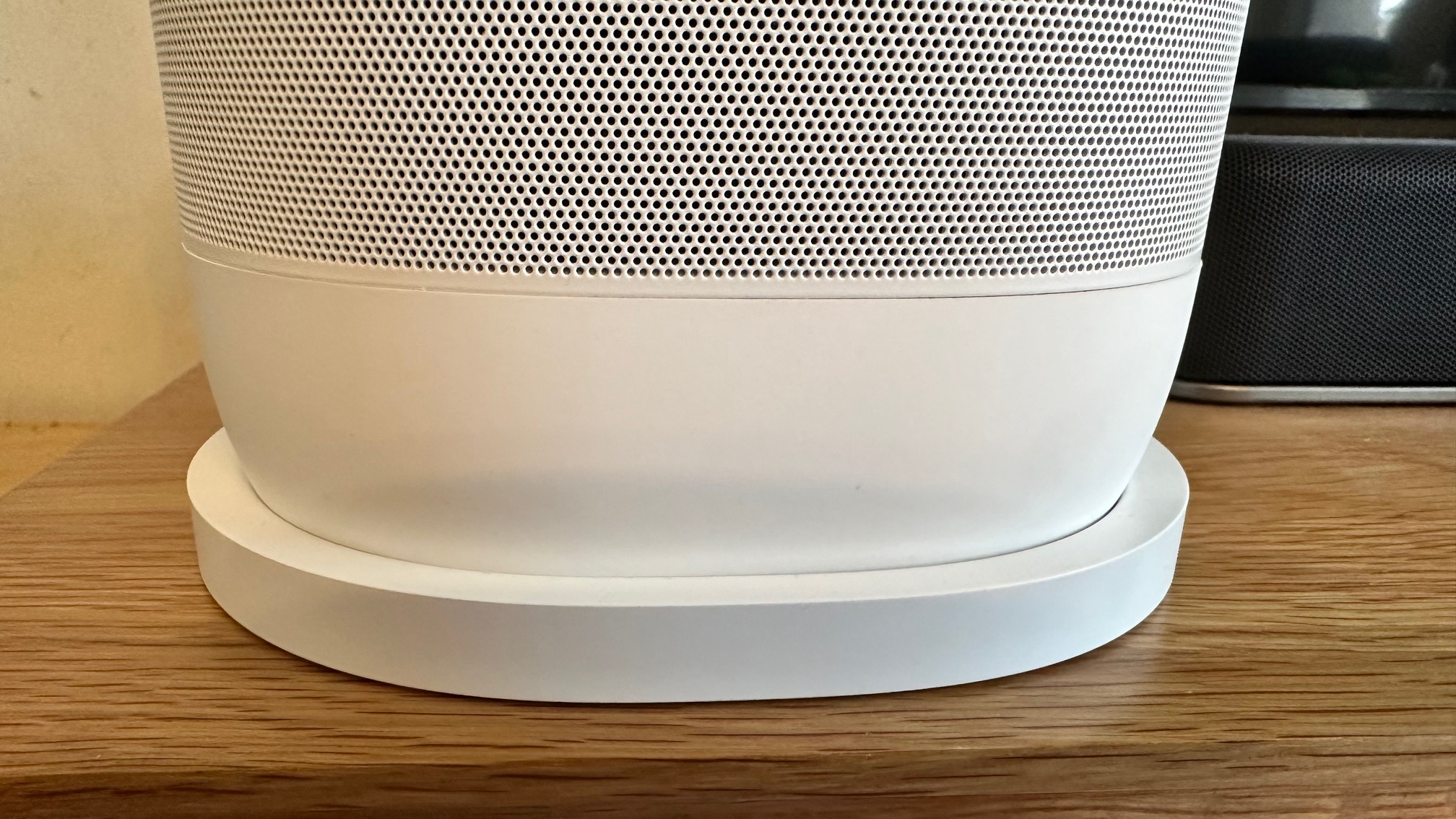
The Sonos Move 2 is more than just a Bluetooth speaker — it’s a smart speaker as well. The closest comparison is from the same manufacturer: The Sonos Era 100. They’re both about the same size, both lack Spatial Audio, and have a similar sonic architecture on the inside. Both connect over Wi-Fi so that you can listen to music, and both feature a Bluetooth connection for older devices.
The Move 2, however, has a built-in battery and a charging dock, so you can cart it around the house like a kind of smart speaker traveling circus. That battery, Sonos says, will last 24 hours, and my testing tells me that you’ll get around that depending on the volume of the speaker.
The battery is the central feature of the speaker, making a smart speaker something that can be physically, singularly, multi-room, rather than having several Wi-Fi-connected ones around the house.
The battery is the central feature of the speaker, making a smart speaker something that can be physically, singularly, multi-room.
The controls on top are straight from the Sonos Era 100 and 300, with a kind of touch-sensitive volume slider, a play pause button, skip forward and backward buttons, and a voice assistant button to round everything off. They are sensitive and work well enough as methods of controlling the speaker. You can also control the Move 2 with the Sonos App as well — although you might not want to.
The Sonos App remains, unfortunately, less than stellar, with a confusing user interface that makes sure you struggle to find exactly what you’re looking for. It logs in to all your music streaming services and then lets you search through them all once to find the music you want to listen to. It sounds useful, but the search function is fiddly, and finding music from a particular app is a troublesome affair.
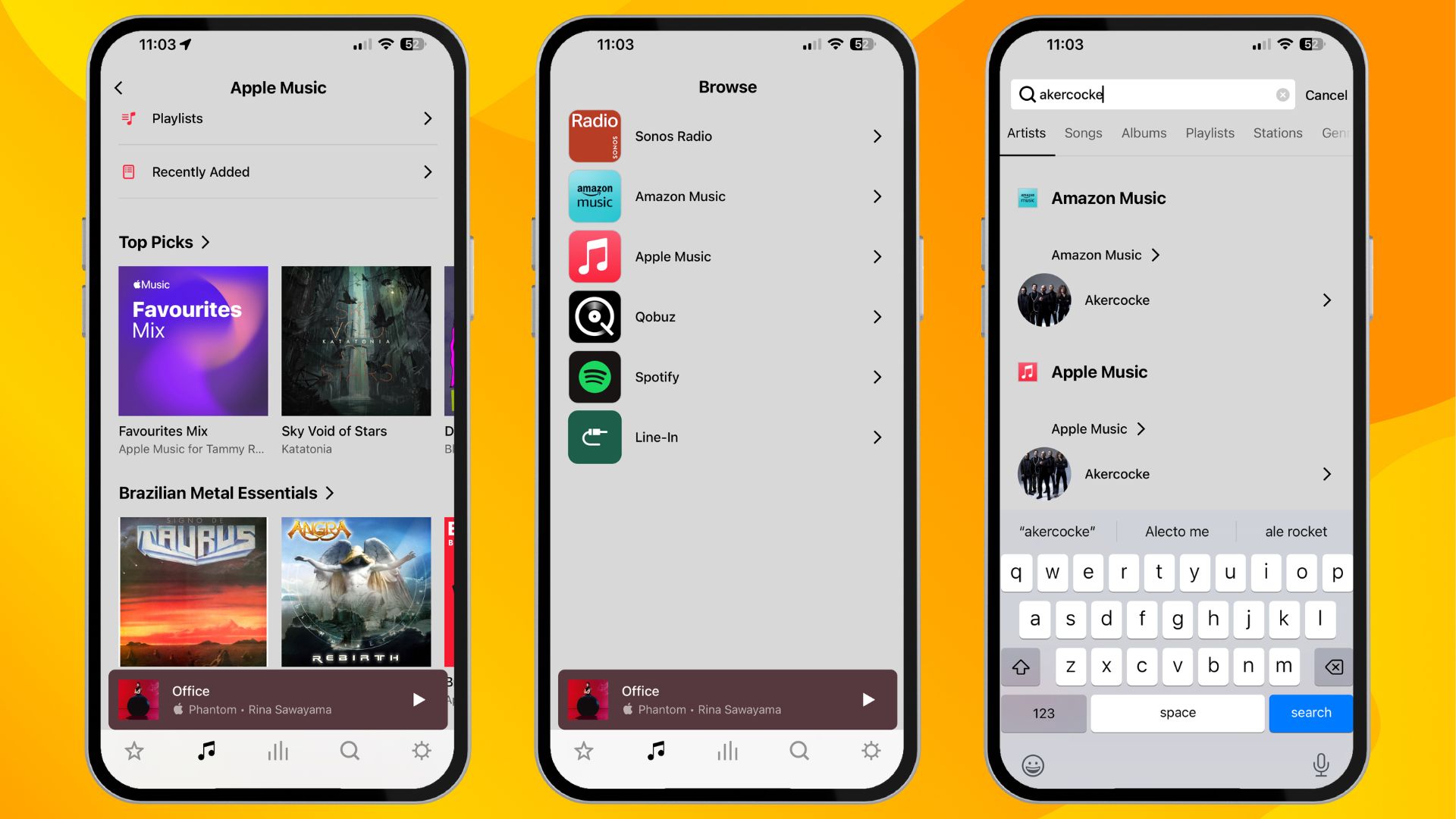
The app does allow you to play with some of the cool ideas though. My favorite is ‘TruePlay Tuning’, which tunes the speaker to the space it’s in so that it sounds the best no matter where it is. With the Sonos Era speakers, this is supposed to be a one-and-done thing — those speakers aren’t going anywhere quickly, so they don’t need retuning every five minutes. Their tuning setups were a lot more involved and saw you waving your iPhone in the air while various booms and rumbles played at insane volumes so that the room could be acoustically measured, and the sound changed to match.
No such thing with this speaker. The tuning system has to be different, for one, because this is a mobile speaker. You don’t want to have to go through the normal tuning rigamarole every time the Move is placed in a different room, so it needs to be streamlined, and easier to use. Easier to use this new version most definitely is; It’s a switch in the settings menu that you can turn on and off. I’m not entirely sure how it works, but I presume the speaker uses the mics on top of the device to see how the music sounds, and then adjusts from there.
However it works, it’s an impressive feature that makes sure that music sounds great within my office, my bedroom, and the lounge, despite the fact the rooms are completely different sizes with different furniture in them.
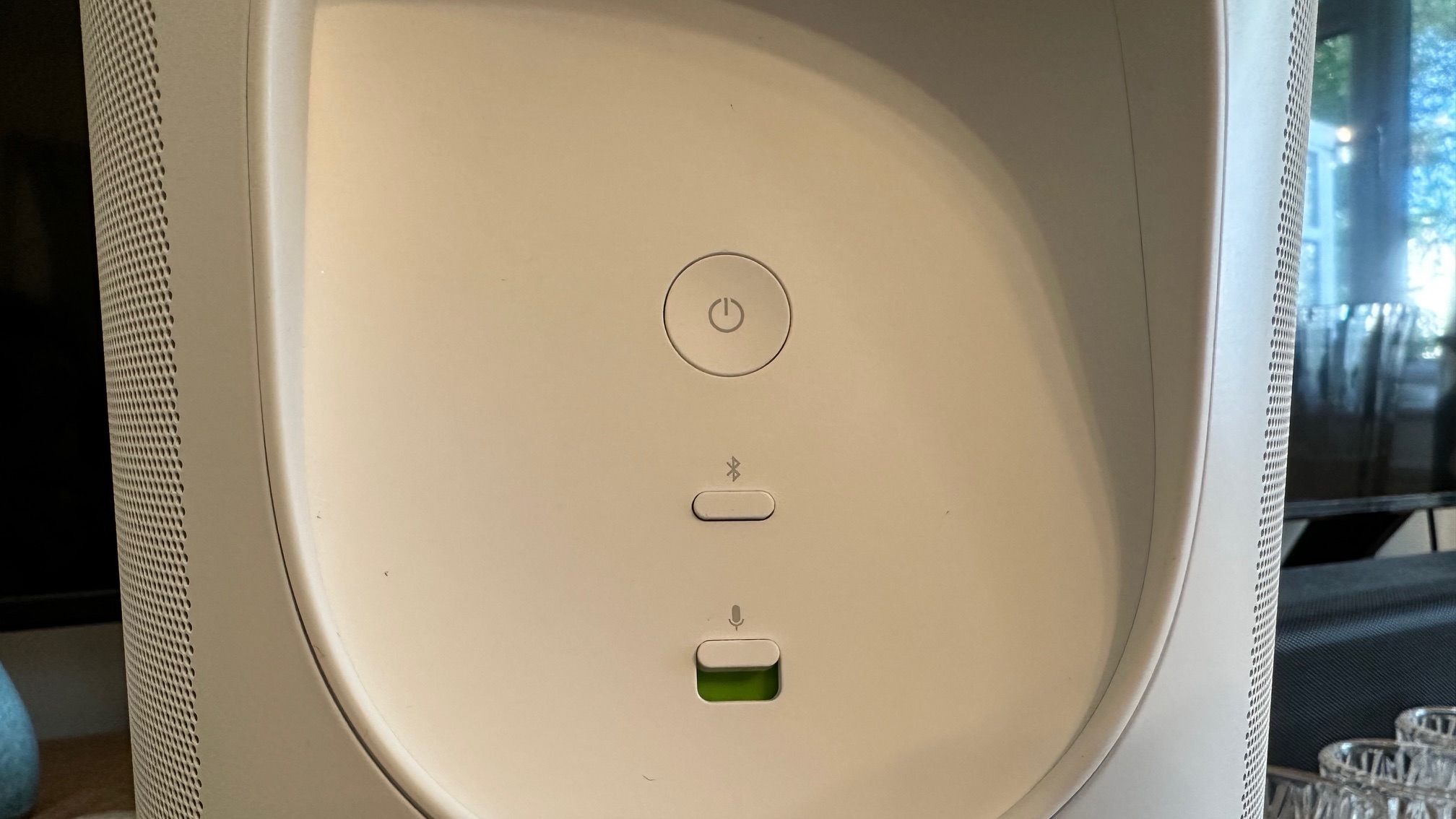
Being a smart speaker, it also has voice assistant support on board, allowing you to control the speaker with either Sonos’s own Sonos Voice control assistant, or Amazon’s Alexa. I don’t use Amazon’s voice-activated smart servant, but I am now used to the Sonos alternative thanks to my Era 300. It works well enough, although I have had some issues with getting it to play radio stations with TuneIn — “Hey Sonos, play Jazz FM” I cry, only to fruitlessly hear back “here’s BBC worldwide” or just a simple “I can’t do that, please go through the Sonos App”. It’s disappointing on the Era, and it’s equally annoying here on the Move 2.
When you’re out and about, you needn’t worry about the app — without any kind of Wi-Fi signal to connect to, the speaker becomes a whole lot less smart. If you stretch it to the garden, then the connection will likely remain, but further than that and it’s a Bluetooth option only.
Ignore the app for a second, and head back to the physical speaker. Spin the device around to the back and find the divet containing the handle, the power button, the Bluetooth button, and the mic mute switch. All feel solid, and do exactly what they need to do.
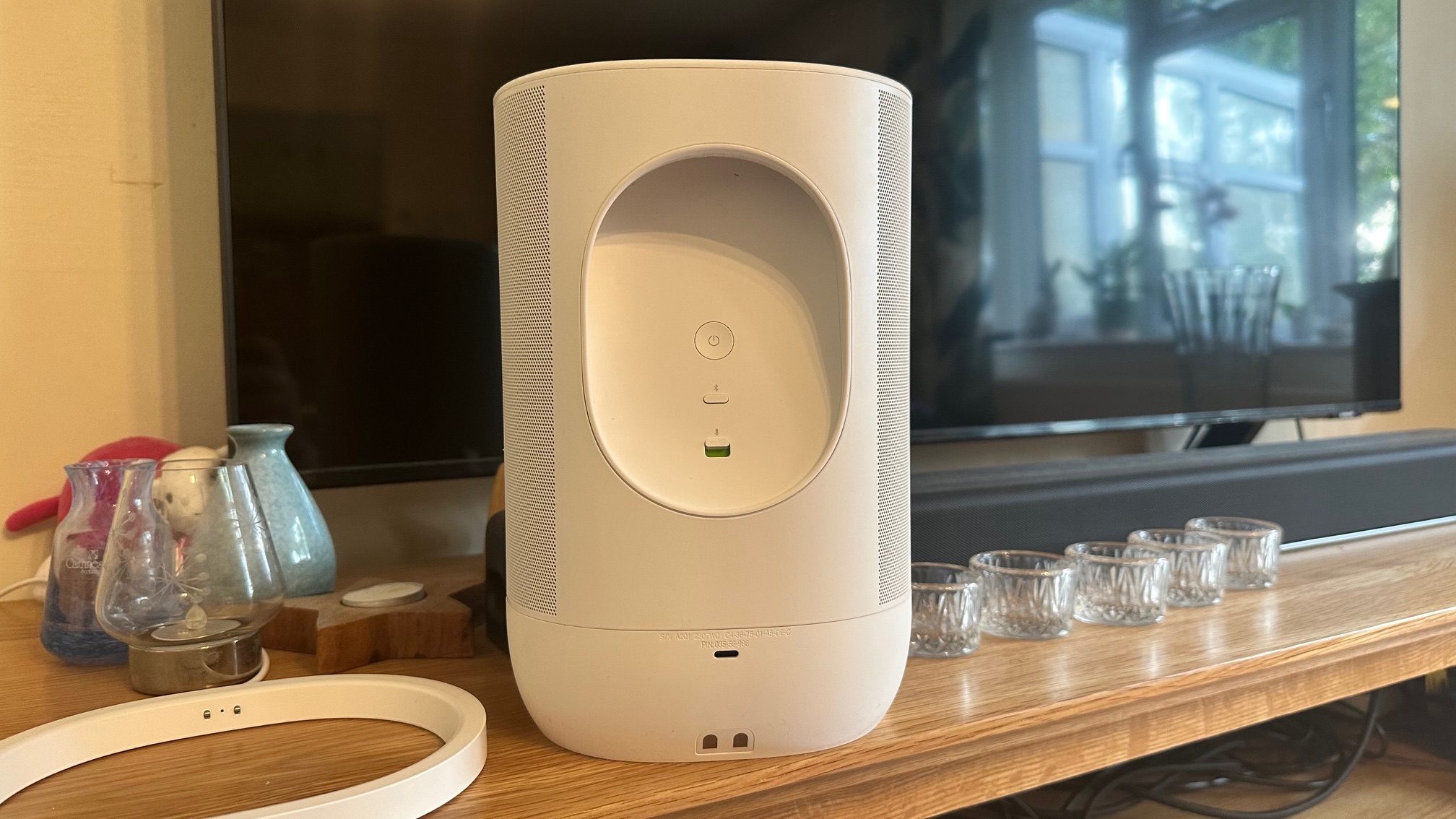
Connecting over Bluetooth is easy — press and hold the Bluetooth button to go into pairing mode, find the device in the Bluetooth devices list, and then connect up. Want to connect again? Just press the button once to go into Bluetooth mode, and previously connected devices will connect without any issues at all. To turn Bluetooth mode off, click the button again. Simple.
The USB-C port on the base of the device can be used to charge the speaker, as well as for line-in connections. For the latter, you’ll need to get an adapter from Sonos, but plug that in and you can hook up older devices like iPods, Vinyl players, and more. It’s a wicked addition and one that not many other speakers have.
To charge the speaker it’s as simple as dropping it into the charging base and watching the battery rise from 0-100 in three hours. That’s a fast charge for such a big device, especially one with a 24-hour battery life. It’s a solid solution too, giving the speaker a kind of permanent home while making it easier to just pick up and take with you around the house, safe in the knowledge it’s got some juice in it.
Sonos Move 2: Sound quality
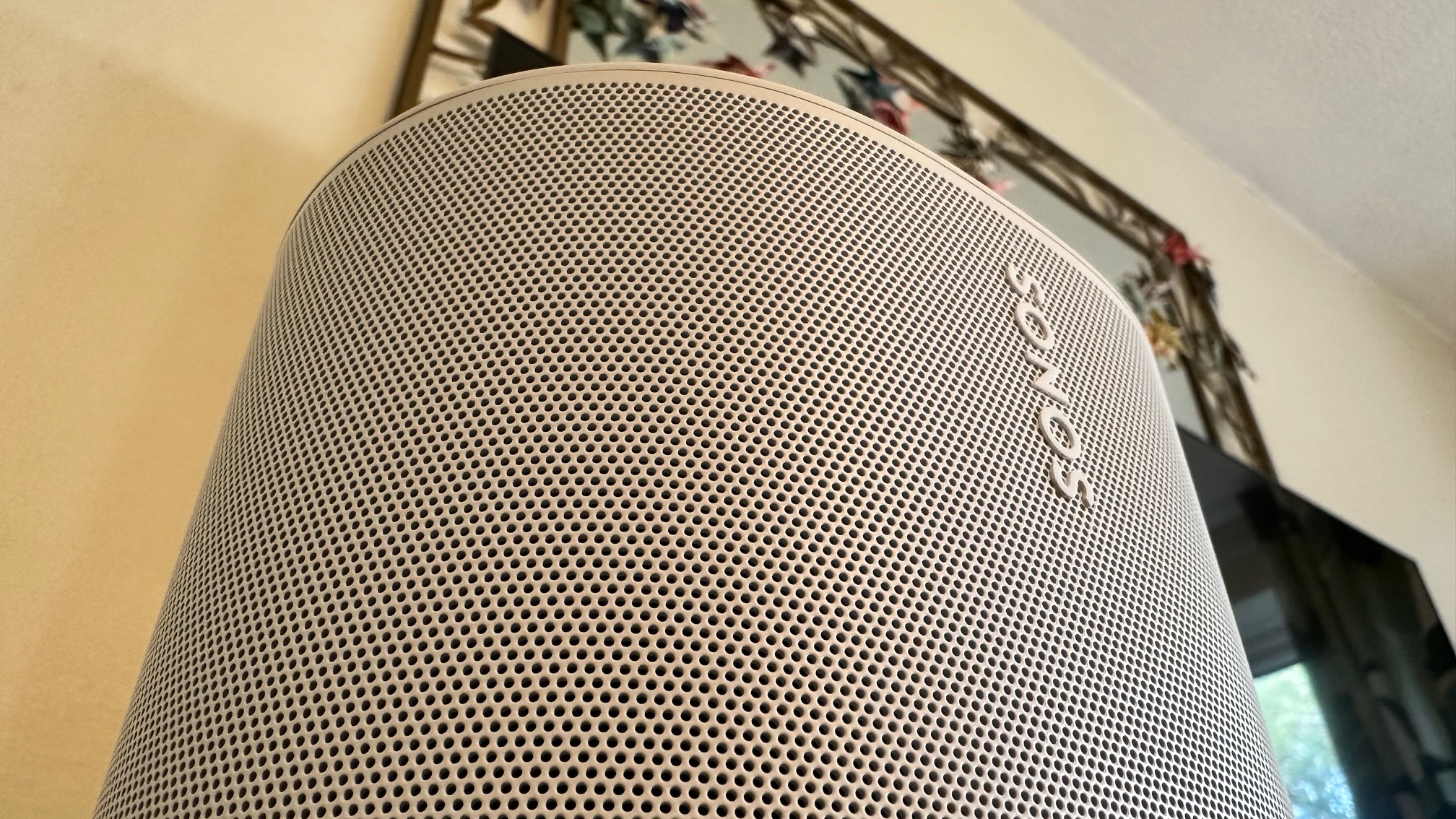
Inside the Sonos Move 2 are two tweeters, double that found on the first Move, and a large woofer that sits underneath. It allows for a good approximation of stereo sound given that the two drivers are sat so close to each other on the top. The whole things mixes together for a pleasingly fun, engaging sound thats never fatiguing or too in your face. To most people it’s going to sound great, and the slight lack of high end detail isn’t going to cause any kind of issues. For those looking for a little more, it provides enough in the low-end and the mids so as to make the detail problem less attention grabbing.
Spin up the Unknown Mortal Orchestra’s Chronos Feeds on His Children for some sixties-esque psychedelic vibes, and find the fuzz present and correct. The vocals are right in the center of the mix, surrounded by dual-tracked harmonies. The guitar as it melds into The American Guilt hits as hard as it should, the bass dancing in the background. The jingling bells overlay the track, the lo-fi drums laying solid rhythm with little trouble. There is perhaps a little detail lost to the warmth of the sound signature and it’s not as spacious as the larger Era 300, but it’s an engaging, entertaining experience.
It wouldn’t be a Tammy review unless there was some death metal — and it’s the song from the start, Nile’s That Which is Forbidden, that catches my ear. The uncomfortable strings are every bit as unnerving and unapproachable as they are meant to be, the guitars cutting through with a menacing precision and edge. The bass kicks with a mighty punch, and the drums underlay with a pummeling double bass barrage. Death metal is surprisingly hard for a speaker to get right, and the lack of low-end boominess that some are prone to is not present here. Sonos says it’s like being at a live show — while I might not agree completely, it’s a very impressive showing from a speaker that’s got to replicate a whole system in one.
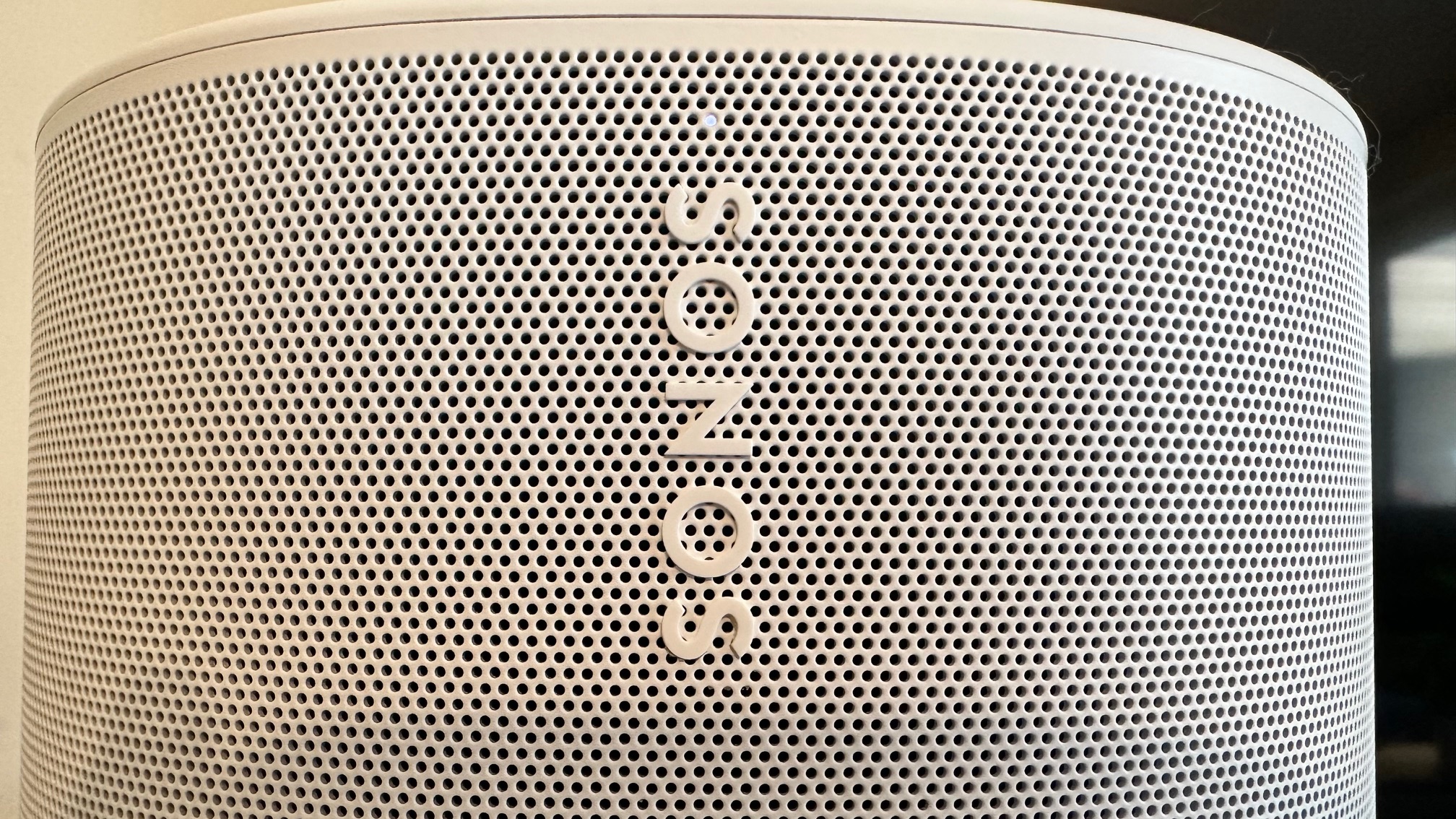
Going back in time a few decades, and Jazz classic Blue in Green by Miles Davis sounds triumphant. The Move 2 does an excellent job of keeping up with Davis’ weaving trumpet lines, the double bass in the background weighty and purposeful. There’s some detail lost to the rolling cymbals in the background, but the piano is perfectly replicated and beautifully portrayed. The mids and the low end is a particular highlight, lending some depth and width to the recording — but that depth and width only goes so far. The soundstage is still tight, with instrument seperation restricted in the mix. We’ll let it off on the latter part, however, given its an older stereo recording.
Overall, the speaker sounds good. It’s dynamic, engaging, and a lot of fun. Detail heads aren’t going to find a huge amount to complain about, but they might miss some of the top-end stuff in some tracks. Compared to the Era 300 it does lack a little thickness to its sound and some of the detail in high-end frequencies, but it is a smaller speaker, to be fair.
Sonos Move 2: Competition
While the Sonos Move 2 is an excellent speaker, it comes with it’s own very high price tag. At $449, the Sonos Move 2 is a great deal more expensive than other Bluetooth speakers and even comes in at the same price as the bigger and more sonically expressive Era 300.
Consider instead that the Era 300 is something almost entirely unique. Unlike a Bluetooth speaker, it is also smart, so you can connect to the internet and play streaming platforms directly on the device. It is a portable smart speaker — something that not many other companies make. The Bose Smart Speaker is a similar option, and it does cost slightly less, but that’s about it when it all boils down to it.
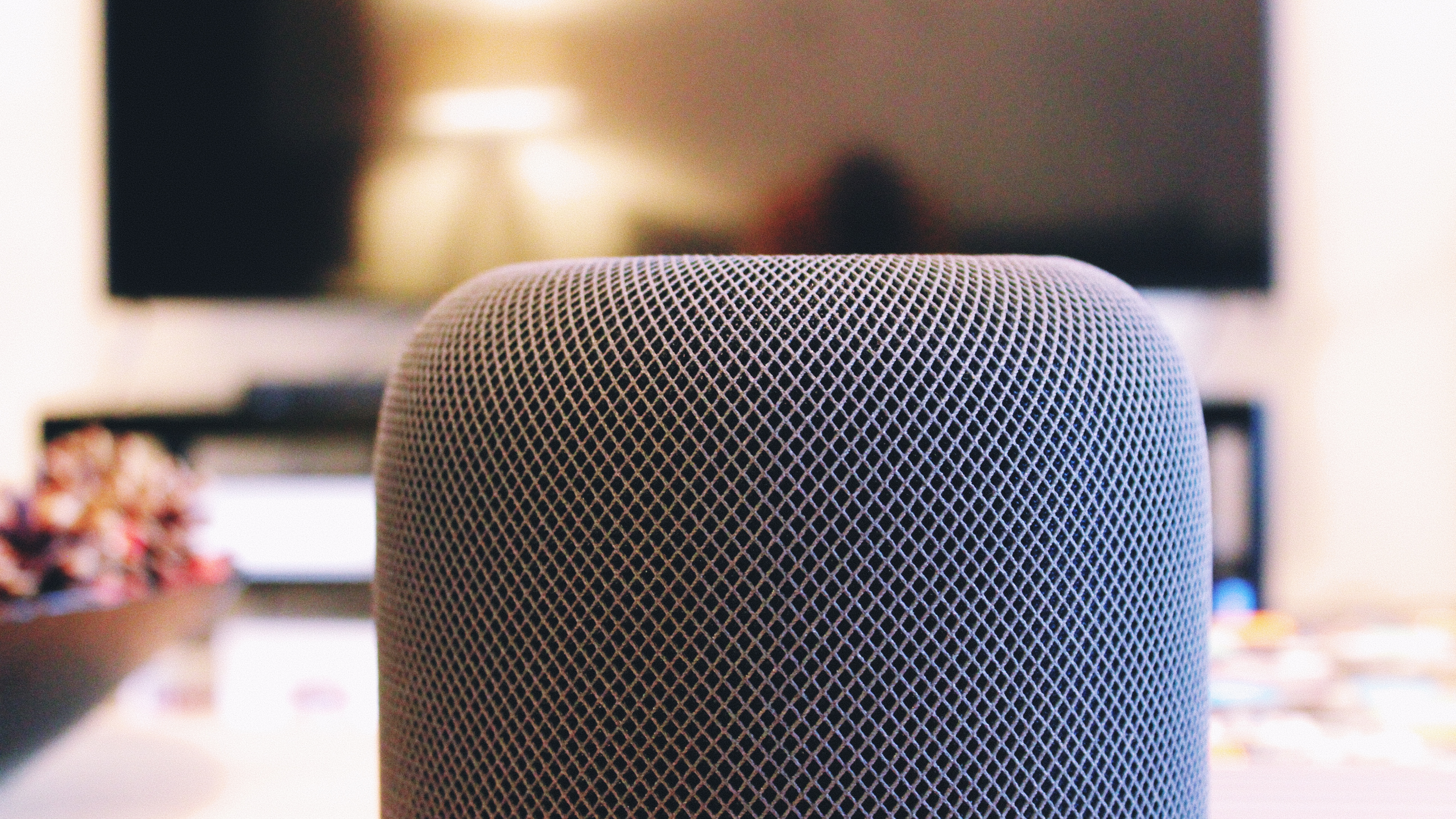
If you want a speaker that you can take around the house all day as you potter about or have evening get-togethers in the garden, then the Move 2 is perfect — although if you’re not planning on moving it around, save some money and get the Era 100 instead. That’s a sonically similar speaker, minus the battery and charging cradle.
The HomePod is also a kind of competitor, but only in that it is a smart speaker. If you want Siri, then the HomePod line is still the only way to go, but you can’t take the Apple speaker into the garden unless you’ve got an unholy-length power extender.
Sonos Move 2: Verdict
The Sonos Move 2 is a wonderful piece of smart tech. It sounds good, looks great, and you can move it and its sweet sounds around the house. The Trueplay tuning is unique and seems to make an active difference, but the app continues to be slightly disappointing.
It is very, very expensive, but you do get what you pay for — just make sure you want what the package is offering. If you don’t think you’ll be moving it around the house, then you’ll be better off looking elsewhere. Perhaps the Era line, or even the HomePod might be better suited to your needs. If you’re on the move though, the Move 2, as its name suggests, is fantastic.
